Evaluating the CPD resources
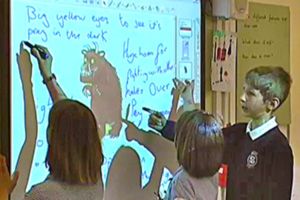
Evaluating the impact of the professional development workshop programme on the quality of classroom dialogue using the interactive whiteboard.
Team
Sara Hennessy, Paul Warwick and Tatjana Dragovic
Funding and Impact
This project funded by the ESRC Impact Acceleration Pilot Programme from January-August 2014 involved using our multimedia materials and CPD resource book to support teachers, mentors and advisers in developing more dialogic classroom practice with the IWB. The impact was evaluated in 5 clusters of schools through questionnaires, interviews and teacher portfolios.
Using a CPD workshop programme to impact on the quality of classroom dialogue supported by the IWB

A resource for school-based continuing professional development (CPD) was published by Open University Press in 2014. The CPD resource was co-authored by academics Sara Hennessy and Paul Warwick and 3 participating teachers (Lloyd Brown, Diane Rawlins and Caroline Low).
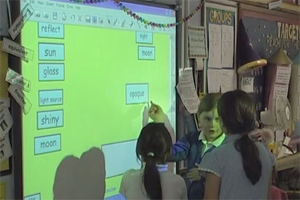
It links to freely available online resources including an innovative resource bank of annotated screenshots, video clips of dialogic classroom practice in which students build knowledge together, IWB software templates for lesson activities, and face-to-face workshop activities. We have offered the CPD programme free to around 80 teachers in 5 locations in East Anglia during the Spring and Summer terms of 2014, and tested its impact.
The CPD programme and research activities involved:
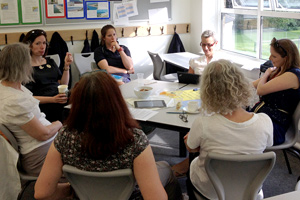
- 2 workshops engaging with the printed and online resources in each location (school cluster), with teachers trialling new approaches in between (minimum of 3 weeks between the workshops),
- one teacher (“ambassador”) in each location organising the CPD, scheduling and co-leading the 2 workshops with our researcher, involving up to 20 teachers / workshop
- teachers answering a short survey at the beginning and taking part in an (individual or group) interview at the end of the CPD programme.
- participants reflecting on what they think worked well; they shared and we uploaded to our online site some examples of what they did in the classroom.
CPD Workshops
Outcomes. CPD Workshops enabled primary, middle and secondary school teachers:
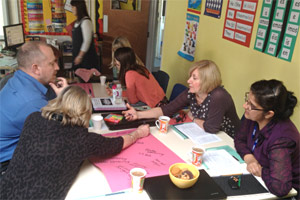
- to talk through issues about classroom talk and dialogue with their colleagues,
- to review video examples of classroom dialogue ‘in action’,
- to audit their own practice to see how dialogic it is,
- to examine the role that the IWB has to play in supporting their dialogic practice,
- to develop new teaching materials/activities with the IWB to support dialogic teaching,
- to try these out in their classrooms and refine them,
- to get feedback from peers and share new practices and teaching materials they developed with other teachers – within their schools and beyond.
Impact report
Download CPD Workshops Full Impact Report.pdf
CPD Workshops Impact Press Release.pdf
CPD workshop materials (these may be freely re-used or modified, apart from photos):
- CPD workshops outline
- Power point presentations Workshop1, Workshop 2, CPD_workshop_3-4_hours.pptx
- Dialogue tables, resource bank and other professional learning materials
- Photos of workshops
- Teachers’ posters from workshop activities
Research instruments
Survey doc and Survey pdf of knowledge about dialogic teaching and IWB use before starting programme (can be adapted for measuring change afterwards too).
Simple coding scheme for 4 open-ended questions on survey: categorizing Weak/Medium/Strong understanding of dialogue and use of IWB to support it.
Teacher interview questions and Ambassador interview questions exploring impact of CPD, changes in practice, role of ambassador, challenges.
Teachers’ materials are available
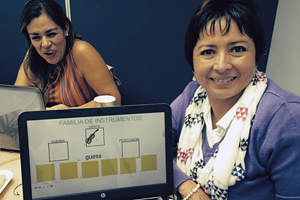
Materials contributed and tested out by teachers, including flip charts that can be re-used or modified, can be downloaded.
These cover a range of subject areas, phases of schooling, and teaching aims and include resources for Secondary/Middle school, Primary school, Generic dialogue.
